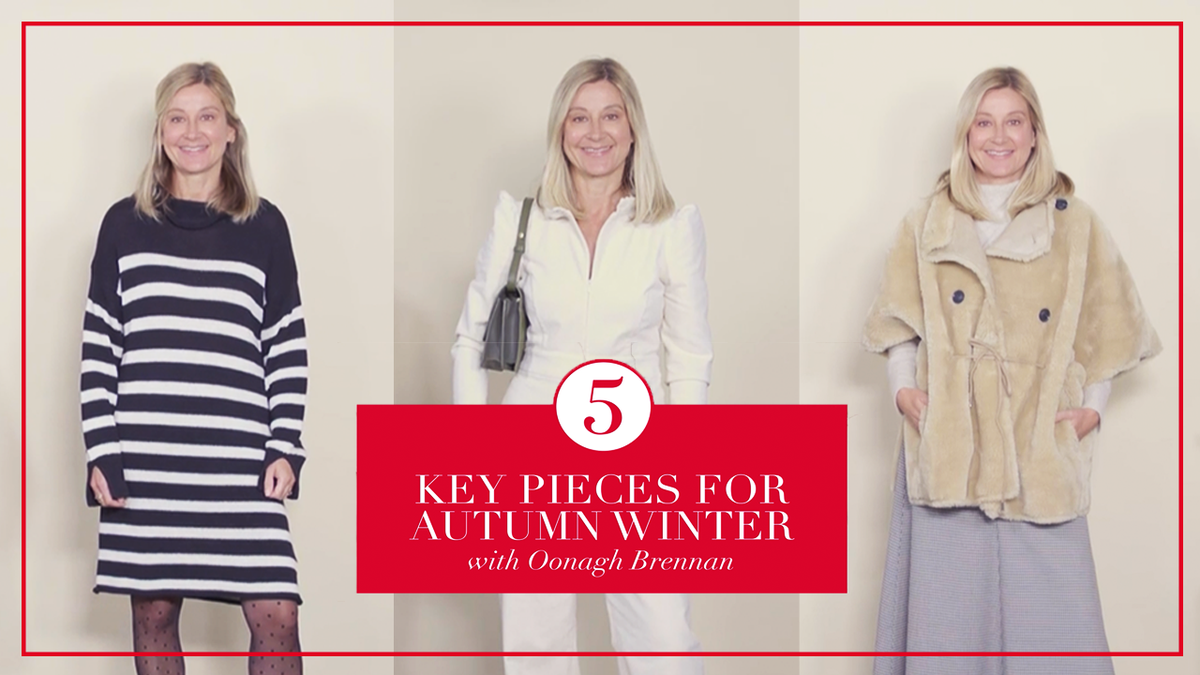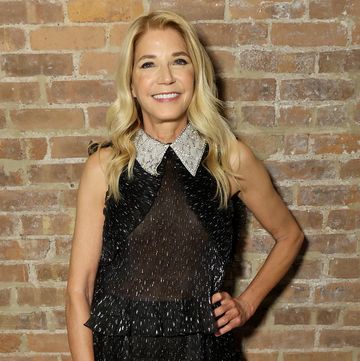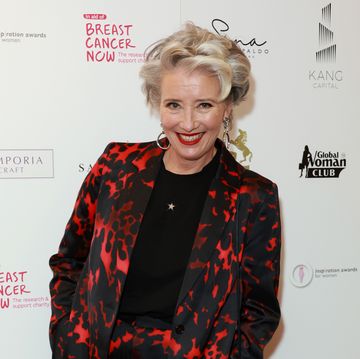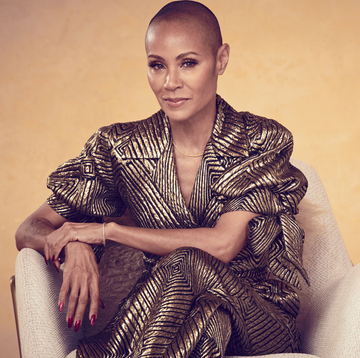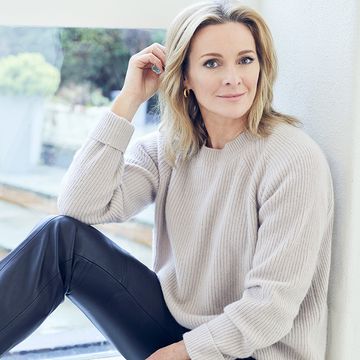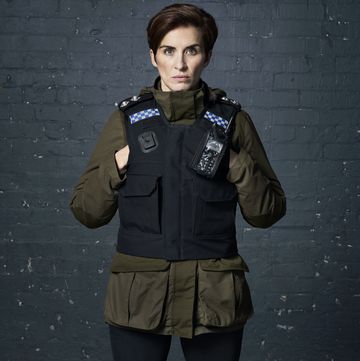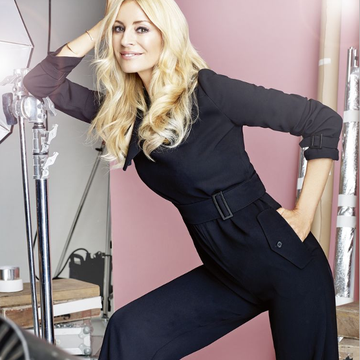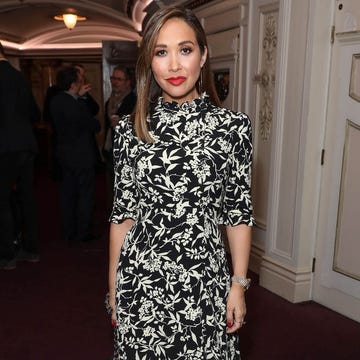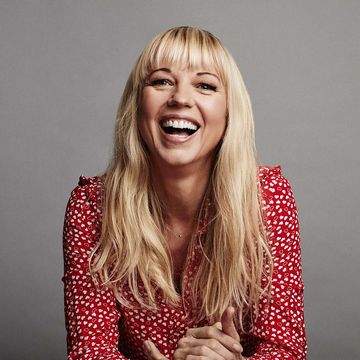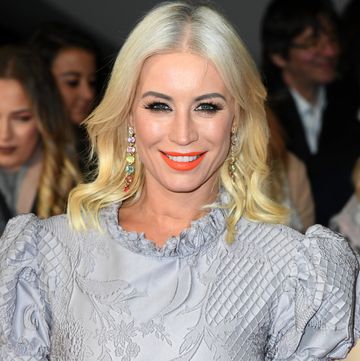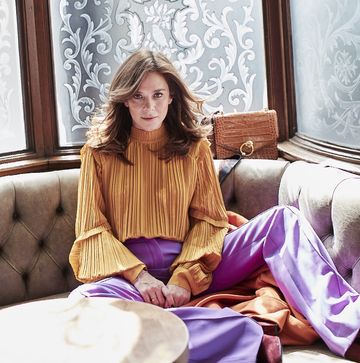Not many actors can steal a scene from under Benedict Cumberbatch's nose – but Andrew Scott can. From Sherlock to Bond, with a/ bit of Frankenstein in-between, he tells Rosamund Dean about his brilliant career
It takes quite a talent to out-charisma Benedict Cumberbatch. But when Andrew Scott strutted into Sherlock as his arch-nemesis Moriarty, that’s exactly what he did. Think of the best scenes in the BBC’s glossy, talent-crammed series: the swimming pool, the rooftop. They’re all about his utterly deranged, wild-eyed evil genius.
Theatre buffs will have known the 38-year-old’s work for years. He is a card-carrying, Olivier Award-winning thesp, having trod the boards at the National Theatre, The Old Vic and even on Broadway. But, to my immense relief, Scott is no earnest artiste who only wants to talk about his 'process'. As we peer inside a room full of ornate furniture and terrifying taxidermy, looking for a quiet spot to do our interview, he remarks in his Irish burr, 'It's a bit Sherlock in here, isn't it?'
It turns out he’s just as much of a fan boy as anyone else, and will happily spend hours meeting admirers at Sherlock conventions. ‘I don’t think there’s anything “better” or more worthy about doing a play in the fringe,’ he says. In fact, he admits, it’s nice to be able to tell his parents he’s going to be in something that all their friends will see. Like the 24th Bond film, Spectre, in which he was cast after working with director Sam Mendes on Broadway.
‘I was at home when I got the call and rang my parents right away,’ he laughs. ‘They were delighted. I’ve done a lot of experimental theatre, so I say I’m doing a play at the Royal Court and they’re like, “Oh…” [does a look of feigned interest]. But everybody has at least heard about Bond.’ He pauses, perhaps feeling he hasn’t credited his parents with much theatrical nous, before adding, ‘Although my mum does like a bit of experimental theatre…’
Alas, he can’t say much about Spectre, nor the new series of Sherlock. (Believe me, I tried…) ‘I seem to be in the habit of doing projects that I can’t talk about because there’s a lot of secrecy attached to them,’ he sighs. ‘Plot is everything in Bond. You don’t want to give the fun away.’ Can he at least tell me about his character? ‘I play the head of an organisation called the Centre for National Security. It’s about ethics and how the new world of surveillance compares with the old world of surveillance, and the tension between them.’ He pauses: ‘And that is officially all I can say.’ I joke that he’s reading from the Bond Official Line Handbook and he affects a robot voice, complete with robot arm movements: ‘This. Is. The. Official. Line.’ He laughs. ‘Although I can tell you that I get to have lovely suits and a nice desk.’
Scott is a fizzing ball of energy and those deep-brown eyes, dark and menacing on screen, are warm and welcoming in the flesh. And his enthusiasm is a breath of fresh air in what can be a stiflingly sneering industry. For this he credits ‘where I come from, where friendliness and being open towards people is just part of the culture’. Born and raised in Dublin, Scott started acting when he was eight. For adorability overload, google the Flahavan’s porridge advert he did in the 1980s. But I’m surprised when I hear what he chose to buy with his first paycheque. ‘It was a bunk bed,’ he says, proudly, ‘with a desk built into it.’ Seems a very sensible purchase for an eight-year-old. ‘Very telling, isn’t it?’ He laughs. ‘But it’s not as if it was a beautiful mid-century desk, like some creepy eight-year-old. It was cool!’ He pauses. ‘Okay, maybe that is a bit strange.’
Despite this early start, his parents weren’t pushy stage-school types (his mum was an art teacher and his dad worked as a manager at an employment agency), but they were relaxed about him following his passion. Like many actors, he says he was shy at school (‘sitting in the corner, leafing through my furniture catalogue – hahaha!’), and was nudged towards acting as a way to bring him out of his shell. For the past two decades, he has been in the cushy scenario of working steadily but flying under the radar, so not having to deal with the inconvenience of fame. But then came Sherlock, Mark Gatiss and Steven Moffat’s BBC drama, starring Benedict Cumberbatch.
‘I was thrilled when I heard they had cast Andrew,’ Cumberbatch tells me over email. ‘I'd been a fan of his stage work for years before and knew him a little socially through mutual friends. As an actor, his choices are always alive and unexpected. But, even better than being a fierce and unique talent and raising my game, he is a true friend. We laugh. A lot! And the day always feels lighter when he's around.’
Landing the role dramatically changed Scott’s life, since the intensity of fan worship levelled at Sherlock is the type usually reserved for the rebellious member of a boy band, or Twilight. Benedict and his Cumberbitches are the tip of the iceberg. There are people with large tattoos of Sherlock’s face, and fan fiction in which Sherlock and Moriarty (known as Sheriarty in certain circles) have a steamy affair. In a nod to the fans, the last series included a fantasy sequence in which Cumberbatch and Scott leaned in for a kiss… and the internet exploded.
Scott fully embraces the madness. ‘There’s this assumption about fans that they’re nuts. But they’re people that are really passionate, and I like that,’ he says. ‘Everyone has that when they’re young and as we get older that passion – that real, all-consuming passion – gets knocked out of you and you become cynical.’
Fame, which Scott succinctly describes as ‘just all a load of bollocks’, does have its perks. You get to wear some good clothes, and have more options work-wise. But, with a high-profile role comes intrusion into his private life. The tabloids made a song and dance of his ‘coming out’ two years ago, after the first time his sexuality was mentioned in an interview. But it’s not something he has ever kept secret. He’s just in the tricky situation of wanting to be open about his sexuality, but not wanting to constantly talk about it. ‘I don’t spend my time with my family or my friends talking about this, you know. They don’t ask me, every time I go home, “How are you getting on, being gay?”’ So it’s just a balance.’
Scott lives with a long-term partner in London and that’s all he’ll say about his relationship. At one point, it feels like I’m playing a fiendish game of Guess Who?. Does he have a normal job? ‘He doesn’t have a normal job.’ So is he an actor? ‘No, he’s not an actor…’ He starts to tell me that he doesn’t think people are interested and, when I raise an eyebrow, he concedes, ‘I think they start to care once you start talking about it. So I have a rule: I just don’t talk about it at all.’
But he’ll happily talk about the Irish referendum on gay marriage, for which he went home to Dublin earlier this year – an experience he will never forget. ‘People came out in droves, from all different backgrounds, to vote for love,’ he says, looking genuinely moved. ‘And that’s essentially what it is. It also meant that the idea of being gay or bisexual was discussed by families all over Ireland. So it was no longer talked about in hushed tones, like, “Oh, I believe she has a son that’s… you know.” Bringing it out in the open like that, and for it to have a result like that, means that it has changed something in the genetic make-up of the country. I don’t think that the full depth of what has been achieved there has even unfolded yet.’
For a moment, it looks as though he's close to tears and, he tells me, that would actually be pretty standard. ‘I cry all the time,’ he confesses. ‘I cry at adverts and reality television. But I don’t think it’s a sign of weakness. Vulnerability is your greatest power.’ So now that Scott and his mystery other half can marry in Ireland, would he want to? ‘I’m not sure I would actually,’ he says, adding that, for him, that’s not what the referendum was about. ‘Just because I’m gay doesn’t mean I have to want to get married now. It’s just an option. But it’s about having the same options as everyone else. So now a gay person has a right not to get married.’
Scott’s varied career includes straight and gay characters, and those of indeterminate sexuality, which is notable only for the fact that he doesn’t feel the need to shy away from gay roles for fear of being typecast. He starred alongside ‘my great friend’ Ben Whishaw in the Olivier Award-winning Cock at the Royal Court Theatre, and as Dominic West’s less flamboyant partner in last year’s heart-warming Britflick Pride. ‘So many people – gay and straight, girls and boys, young and old – have come up to tell me how much they loved Pride and how moved they were by it, so that’s been really lovely.’
As for the next few months (apart from the small matter of Bond and Sherlock), he stars in Victor Frankenstein with James McAvoy, Alice Through The Looking Glass with Johnny Depp, and a big-screen adaptation of children’s book Swallows And Amazons. Then there’s a role in BBC Two’s forthcoming Shakespeare spectacular, The Hollow Crown, which co-stars his old mucker Cumberbatch. To say he’s in demand would be an understatement. So, I’m interested to know, how’s the old work/life balance going?
‘I’ve actually got quite good at that. I just had a little holiday, in the Cotswolds. I’m better at saying no to things now.’ He grins, conspiratorially. ‘Although I’ve always been able to have a good time.’
He answers a call from the driver of the car that has come to collect him with a cheery 'Sorry to keep you waiting, my friend!' and theatrically hops up on the window ledge to see exactly where he is. And with that, he’s off, throwing smiles and thanks at everyone he passes. We might know him as an evil mastermind, but the real Andrew Scott wants you to know he is anything but.
Spectre is out on November 6th, Victor Frankenstein on November 27th, and Sherlock returns to BBC One with a Christmas special in December
This interview appears in the October issue of Red Magazine, on sale 1st September on newsstands and digital download

